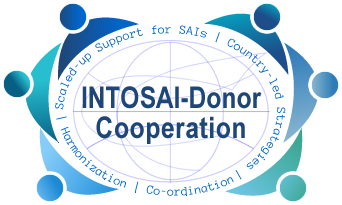Achievements At A Glance
- Coordinated regional support to enhance audit skills in small island developing states
- Accountability gap closed by bringing audit of government financial statements in Tuvalu and Kiribati up to date
- Enhanced public confidence in government by providing assurance that public funds were spent as intended
- Improved government budgets and policies due to more reliable financial information
- Coordinated peer-to-peer SAI performance measurement assessments
- Improved strategic plans and performance tracking at SAI and regional level
The Challenge
Several smaller island nations in the Pacific have limited auditing capabilities. For example, back in 2009, the Tuvalu Office of the Auditor-General (TOAG) and the Kiribati National Audit Office (KNAO) were not completing audits in a timely manner. They had backlogs of audits and struggled to keep up with changes to international financial reporting and auditing standards.
One of their main challenges was in the area of human resources, a typical problem faced by small island nations in the Pacific. The untimely audit of the government’s accounts entailed reduced accountability for the use of public funds in Tuvalu and in Kiribati, as the Parliaments and the citizens did not receive assurance that funds were spent as intended.
The Response
The Pacific Association of Supreme Audit Institutions (PASAI) designed a Sub-regional Audit Support Programme (SAS) to support some of the smaller and most vulnerable SAIs that were facing similar challenges with staff capabilities, audit methodologies and systems. The programme was linked to PASAI’s strategic plan and its work program, the Pacific Regional Audit Initiative (PRAI).
The SAS programme was operational from 2009 to 2016. It supported TOAG and KNAO capacity building by helping them complete financial audits, train SAI personnel and improve information sharing. This effort was made possible by a team of secondees from each participating country and supported by consultants to assist in the audit of public accounts using updated auditing standards.
The Asian Development Bank financed the SAS programme, through the Japan Fund for Poverty Reduction. The Australian Department of Foreign Affairs and Trade and the New Zealand Ministry of Foreign Affairs and Trade have been the primary funders of the PASAI Secretariat, which has helped implement the programme.
The Results
The KNAO is now up-to-date with the whole of government audits
The TOAG has audited all financial statements submitted, including the whole of government financial statement for 2015
The competency, confidence and experience of the staff involved in the SAS programme have significantly increased.
The timely completion of the whole of government audits has positively contributed to the availability of up to date and reliable financial information for the respective governments in preparing budgets and in formulating relevant policies, which will benefit citizens
The Sub-regional Audit Support (SAS) programme has contributed to increased trust by our clients in the reports we deliver.–Mr. Eli Lopati, Auditor-General of Tuvalu
The results in PASAI have been made possible with the support of donors who have aligned behind PRAI and PASAI´s strategic plan, leading to well-coordinated support to the SAIs in the region.
During the course of the SAS programme, the staff were able to pass on skills to other staff.–Ms Matereta Raiman, Auditor General of Kiribati
PASAI’s regional approach to capacity development has enabled scarce resources to be utilized in an effective way, as synergies have been realized and peer SAIs have worked together to improve performance at the country level. The approach has included staff training and development, sharing resources regionally and aligning policies to strengthen national capacities. This is a good illustration of the key principles for SAI capacity development in the INTOSAI-Donor Memorandum of Understanding.
On the basis of the same regional approach, the INTOSAI-Donor and PASAI secretariats have designed a programme for measuring performance that is in line with PASAI’s regional priorities. Financed by the Australian Department of Foreign Affairs and Trade, this newly developed initiative facilitates SAI Performance Measurement Framework (SAI PMF) assessments for numerous smaller SAIs throughout the Pacific region. Using a combination of self-assessment and peer reviews, the goal is to effectively address the challenges associated with staff and skill limitations.
The TOAG takes part in the SAI PMF programme. The TOAG assessment was conducted in 2016 using a combination of internal assessment and peer review by the Samoa Audit Office with support from PASAI. Following the completion of the draft assessment, the peer review team presented preliminary findings to TOAG management and staff, who acknowledged and accepted the constructive feedback for improvement.
Reference: PASAI Secretariat: “The SAS Story” Further information: www.pasai.org.
The story in other languages:
عربىالتعاون الإقليمي من أجل سد الفجوة في المساءلة – النهج PASAI
La collaboration régionale pour combler l’écart de responsabilité – L’approche PASAI
Colaboración regional para cerrar la brecha en la rendición de cuentas – El enfoque PASAI
